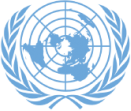Mr. President,
I commend your leadership in the meticulous preparation for, and convening of, the High Level Political Forum (HLPF) this year, under the auspices of the United Nations Economic and Social Council (UN-ECOSOC) leading to the adoption of the Ministerial Declaration this afternoon.
As a land-locked, mountainous and least developed country emerging from conflict, and from the devastating earthquakes of last year, Nepal pins great hope and confidence on this Forum. Its theme of ‘ensuring that no one is left behind’ hits the right chord in addressing our fears in the race to realize the Sustainable Development Goals by 2030.
Therefore, while aligning my statement with those of the Groups of 77, LDCs and LLDCs, I wish to underline some aspects from my national perspective.
Mr. President,
We created this Forum for review and follow-up of the SDGs at the global level. Its credibility will be defined by its ability to provide political leadership, guidance and recommendations to implement the universal and transformative 2030 Agenda for Sustainable Development effectively. For this, HLPF must seek to ensure that the UN has system-wide coherence in sustainable development programmes and policies globally so that it can ‘deliver as one’ on the ground.
At the national and local levels, achieving SDGs is a huge challenge, particularly for countries like Nepal. Nepal is beset with impediments and immense structural constraints. Among these are our landlocked status; climate change and alpine vulnerability; natural disasters; weak governance, peace and stability; shortfall in capacities; unemployment; weak means-of-implementation and resource mobilization; lack of enough technology as well as quality and disaggregated data.
The current level of global efforts and business-as-usual cooperation falls far too short. A revitalized support system and enhanced global partnership are required to ensure timely and effective implementation of the Agenda. Ensuring that no one is left behind requires that all partners and stakeholders be driven by a spirit of global solidarity to support and complement the efforts of the poorest and most vulnerable. All means of implementation for development, including ODA, trade, technology and capacity building need to be employed for these countries and peoples. While increasing the productive capacity and sustainable and resilient infrastructure in LDCs and quality transit transport facilities in case of LLDCs, the graduation of LDCs must also be smooth and sustainable.
Mr. President,
We heard this week and last that implementing SDGs requires a rights-based approach. The Constitution of Nepal adopted last September indeed provides a rights-based, inclusive and forward-looking foundation and framework in this regard.
Accordingly, building on the good progress in Millennium Development Goals (MDGs), Nepal has articulated its vision for socio-economic transformation, and has done its utmost to integrate the SDGs into its new development plan, July 2016 to June 2019. Nepal has already prepared a report of assessment of the national context with respect to each SDG, identifying relevant targets, and taking stock of existing policies and institutional environment. The new plan also puts in perspective the post-earthquake reconstruction to build back better and smarter for greater resilience.
While Nepal is committed to doing all it can, including in forging partnerships among public, private and cooperative sectors at home, it looks forward to increased cooperation and partnerships with all our international partners for necessary resources, technology and other policy supports as agreed in the 2030 Agenda, Addis Ababa Action Agenda, Istanbul Programme of Action, Vienna Programme of Action, Sendai Framework of disaster Risk Reduction, among others. We believe quality education and genuine empowerment of women and the involvement of youth would be game changers for sustainable development.
Mr. President,
I wish to conclude with two points. First, this Forum should not allow any time to be lost for LDCs and LLDCs. We also do not want the loss of several years again like in implementing MDGs and Istanbul Program of Action. This concern is not unfounded. Countries like Nepal have almost lost one year talking about the full implementation of SDGs from the 1st of January 2016. The UN development system’s ability to support means a lot to my country. To truly ensure no one is left behind, we must match our words with our action.
And 15 years is not so long a time. The Forum should work well in advance to bring into perspective a longer-term sustainable development vision that goes well beyond 2030. Transitioning seamlessly from the current period of SDGs to the next phase requires pragmatic sequencing and spacing of monitoring and evaluation exercises and the development of the next cycle, which was missing in the run up to the 2030 Agenda.
I thank you, Mr. President!


